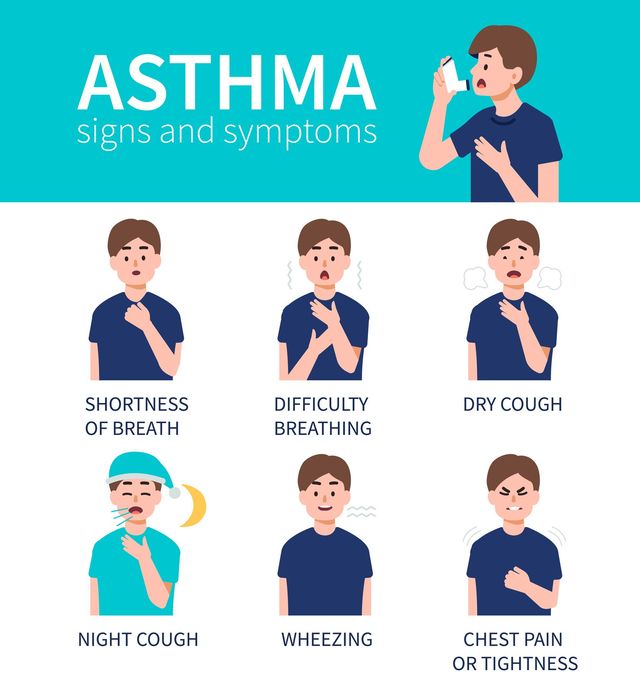
Asthma, a condition in which the airways shrink, swell, and more mucus starts forming (Allergic Asthma Sysmptoms), can become a big challenge especially during allergy season. The exact reasons why some people develop asthma are not fully known. Environmental and genetic factors are believed to be behind this.
However, this trigger can be due to many reasons (Allergic Asthma Cause). Due to this, asthma can be triggered more easily in certain seasons.

Asthma triggers and symptoms
Different seasons bring different allergens, which can be quite troublesome for anyone with a respiratory disease like asthma. For instance, summers bring an increase in pollen and air pollutants like smoke and pollution in the air. While monsoons bring specific triggers like mildew, humidity and even an increase in respiratory infections like the common cold.
What's more, hot air itself can trigger symptoms, especially in places where heat is accompanied by high humidity. Hot air and humidity can trap more allergens, which can worsen air quality and asthma symptoms .
These conditions can trigger symptoms such as shortness of breath, chest tightness and wheezing, especially in children. Long-term exposure can worsen asthma, leading to decreased lung function.
How to manage asthma symptoms?
Asthma cannot be cured, but its symptoms can be controlled so that a person affected with this condition can lead an active life without any compromise.
Seek professional help
Even today, there are many myths and misconceptions about asthma . Especially about inhalation therapy. Therefore, it is important to always consult your doctor, especially a specialist like a chest physician or pulmonologist, so that you can get the right information and treatment about this.
medicine and precautions
Consult your doctor about changes needed during allergy season, ask about your device technology to ensure maximum efficiency from the prescribed medication. Also, follow the Asthma Action Plan.
What other things should be kept in mind?
- To avoid worsening of asthma symptoms, stay indoors when pollen and pollution levels are high. If you must go out, wear a mask.
- Create an allergen-free environment inside the house through regular cleaning. For this, pay special attention to cleaning the bed, vacuuming mattresses, pillows, etc.
- Choose a good air filter for your home to help reduce pollen and dust particles. This can improve air quality.
- A dehumidifier or air conditioner can help control moisture in the air, which can also reduce mold and dust mites.
- Staying hydrated and eating a diet rich in fruits and vegetables can help reduce irritation and inflammation in the lungs, as they are rich in antioxidants.
- Improve lifestyle, including stress management through yoga, meditation, etc. and most importantly, avoid smoking or vaping.
Thus, by following these precautions and treatments, you can manage asthma well during the allergy season and lead an active and healthy life.
--Advertisement--

 Share
Share



